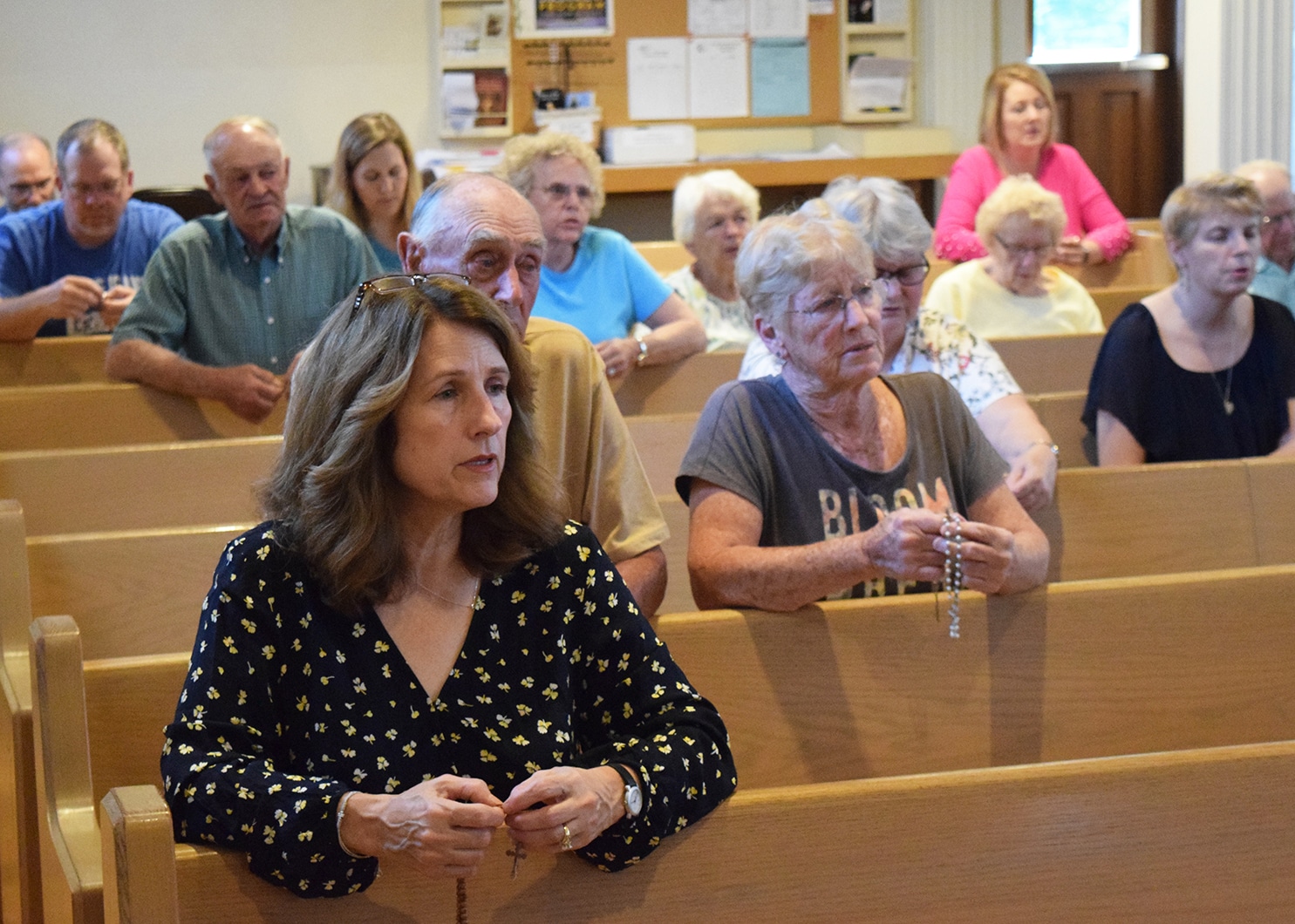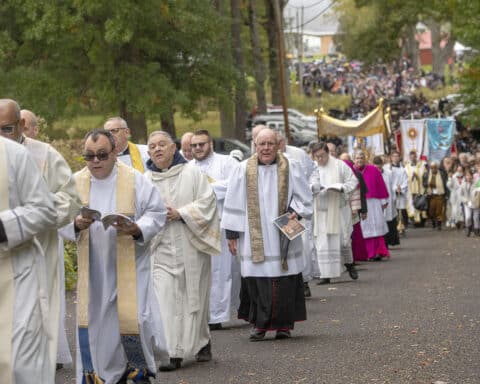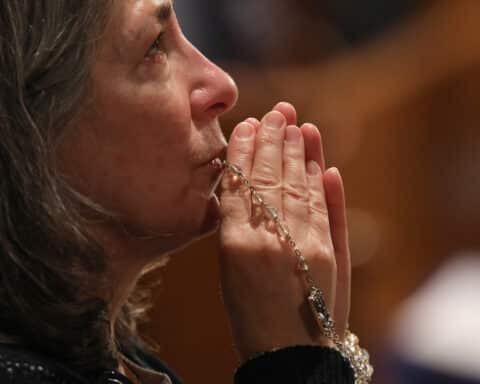Question: I asked someone who frequently stays after Mass to say the Rosary if she’d go with me to a nursing home to pray it. She said she wouldn’t because each time she says the Rosary in front of the Blessed Sacrament, she gets a plenary indulgence and that this indulgence is multiplied for each person who is praying there at the time. For example, if 10 people are praying, each person gets 10 plenary indulgences. She said that she would pray for the residents, but I don’t think that is the same as going in person and praying with these isolated people. Are her ideas true? She also cited Jesus who said, “Where two or more are gathered, there am I in the midst of them,” arguing that this means that praying the Rosary by myself at home isn’t worth as much as praying it in a group. This is depressing if it is true.
— Katherine Hostetter, Eugene, Oregon
Answer: No, most of her ideas are not true. In the world of indulgences, there are some who recite norms and rules that are inaccurate or not currently in force. Some of these ideas come in fragmentary form from sources such as older prayer books, the sayings of saints in apparitions (approved or alleged) or through pious writings, blogs or just from other Catholics who may pass on inaccurate information, even if innocently.
The official source
The proper source to consult for authoritative understandings of indulgences granted and the conditions necessary for them is “The Enchiridion (Handbook) of Indulgences” promulgated by the Church originally in 1968 (and updated occasionally). Regarding the Rosary the following is pertinent:
“A plenary indulgence is granted, when one recites the Marian Rosary piously in a church or an oratory, or in the family, in a religious community, in an association of the faithful, and, in general, when many come together for some honorable end. … A partial indulgence is granted in other circumstances. Now the Rosary is a certain formula of prayer, which is made up of fifteen decades of ‘Hail Marys’ with an ‘Our Father’ before each decade, and in which the recitation of each decade is accompanied by pious meditation on a particular mystery of our Redemption. … The recitation of a third part only of the Rosary suffices; but the five decades ought to be recited continuously. The vocal recitation must be accompanied by pious meditation on the mysteries. In public recitation the mysteries ought to be announced in the manner customary in the place; for private recitation, however, it suffices if the vocal recitation is accompanied by meditation on the mysteries …” ( No. 17.1) .
Here is the clear and authoritative answer, which should form the basis for any conclusions about specific situations. Departures from this norm, even if piously held, do not have the force of law and are erroneous. Hence, your friend would seem to be in error about the exponential multiplication of indulgences, if your description is accurate. No such multipliers are mentioned in these norms.
Praying alone
Further, while there is difference between praying alone and praying as a group, the norm grants the possibility of plenary indulgence by praying the Rosary (even if alone) in a church or oratory. It also grants the possibility of a plenary indulgence in group settings outside of a church or oratory when the faithful gather communally “in the family, in a religious community, in an association of the faithful, and, in general, when many come together for some honorable end.” Surely, coming together to pray for the sick and aging in a nursing home is a gathering for a noble purpose and can gain for the faithful a plenary indulgence if all the requirements are fulfilled.
Praying the Rosary alone, outside a church or oratory (e.g. at home), does not seem to have a plenary indulgence attached to it. The norm says, “A partial indulgence is granted in other circumstances.” However, considering this “depressing” is probably an overreaction. To gain a plenary indulgence under any circumstance is not easy since it requires, among other things, a detachment even from all venial sin. Hence, while striving for plenary indulgences is always a good thing, partial indulgences are no small matter and are likely more the outcome even when plenary indulgences are offered. The bottom line is that prayer of all sorts makes a big difference for souls here on earth and the souls in purgatory. Help souls in all ways possible and reasonable!





